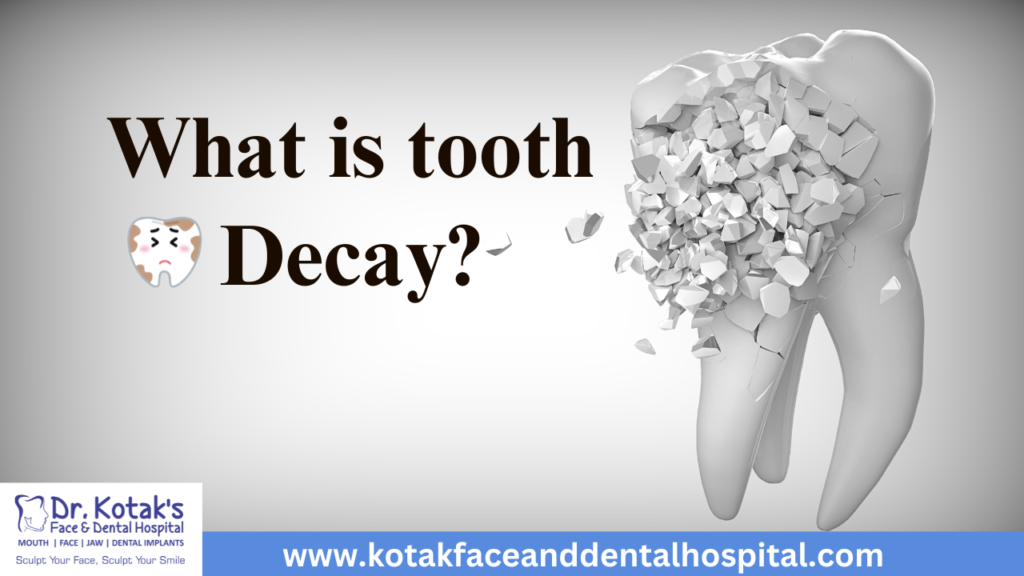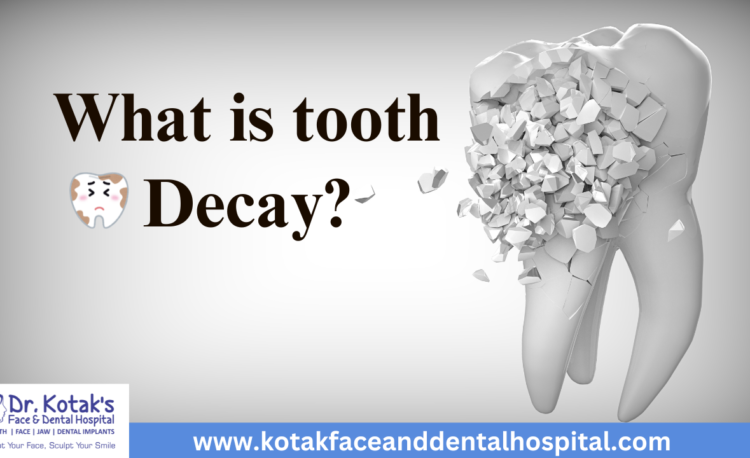
What is Tooth Decay?
Tooth decay, also known as dental caries or cavities, is one of the most common oral health problems worldwide. It occurs when bacteria in the mouth produce acids that gradually erode the enamel, leading to damage and potential tooth loss if left untreated.
Causes of Tooth Decay
Tooth decay is primarily caused by a combination of factors, including:
- Poor Oral Hygiene – Inadequate brushing and flossing allow plaque buildup, which harbors bacteria that contribute to decay.
- Sugary and Acidic Foods – Frequent consumption of sugary foods and beverages feeds bacteria, producing acids that weaken enamel.
- Lack of Fluoride – Fluoride helps strengthen teeth, and a deficiency increases the risk of cavities.
- Dry Mouth – Saliva neutralizes acids and washes away food particles. A lack of saliva can lead to faster tooth decay.
- Genetics and Medical Conditions – Some individuals are naturally more prone to cavities due to genetic factors or health conditions that affect saliva production or enamel strength.
Symptoms of Tooth Decay
Early signs of tooth decay may be mild but can worsen over time if left untreated. Common symptoms include:
- Sensitivity to hot, cold, or sweet foods
- Visible holes or dark spots on teeth
- Toothache or pain while chewing
- Bad breath or an unpleasant taste in the mouth
Prevention and Treatment
Preventing tooth decay is easier than treating it. Here are some essential steps to maintain good oral health:
- Brush and Floss Regularly – Brush twice a day with fluoride toothpaste and floss daily to remove plaque and food debris.
- Limit Sugar Intake – Reduce the consumption of sugary and acidic foods and drinks.
- Visit the Dentist Regularly – Routine check-ups and professional cleanings help detect and prevent early-stage cavities.
- Use Fluoride Products – Fluoride strengthens enamel and helps reverse early decay.
- Drink Plenty of Water – Staying hydrated promotes saliva production, which helps protect teeth.
If decay has already set in, treatment options depend on the severity of the condition:
- Fluoride Treatment – Can help remineralize and reverse early-stage decay.
- Dental Fillings – Used to restore minor cavities.
- Root Canal Therapy – Required if decay reaches the tooth’s pulp and causes infection.
- Tooth Extraction – In severe cases, a damaged tooth may need to be removed to prevent further complications.
Conclusion
Tooth decay is a preventable condition, but it requires diligent oral care and regular dental visits. At Dr. Kotak’s Face and Dental Hospital, we provide expert dental care to help keep your smile healthy and cavity-free. If you’re experiencing symptoms of tooth decay or need a routine check-up, book an appointment with us today!


